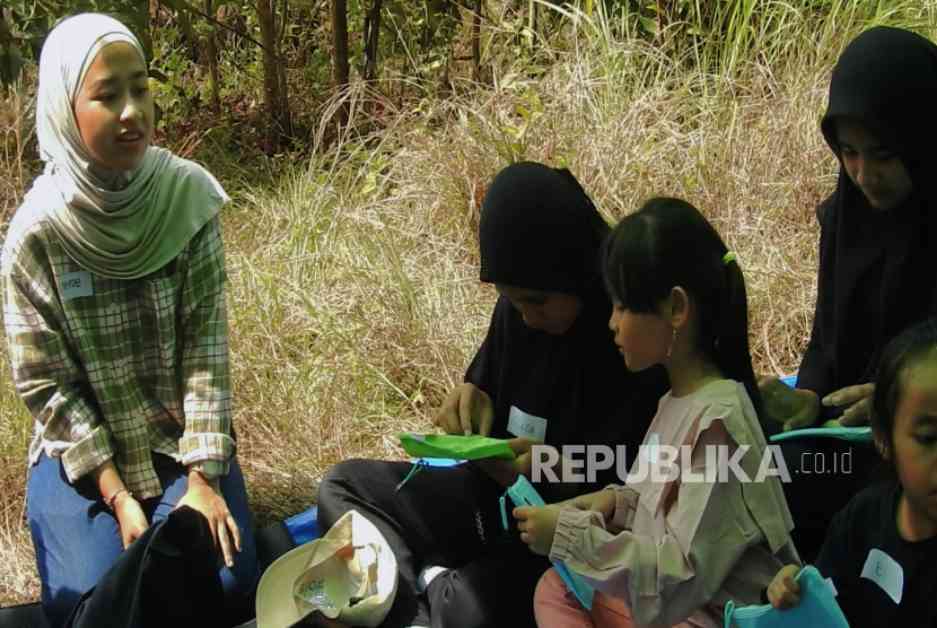The Academy of Environmental Ethics Released by Wakaf Forest
A community initiative known as the Wakaf Forest Conservation Initiative recently launched the Academy of Environmental Ethics (AEL) at Buket Radar in Aceh Besar on Sunday, February 16, 2025. The trial program is set to run for a year, focusing on experiential education with a strong emphasis on learning in the forest or outdoor settings.
AEL, founded by Afrizal Akmal, aims to provide a long-term learning process with regular two-hour sessions held at least twice a month. The program is designed to help students maximize their experiences, acquire new skills, overcome challenges, build self-regulation, self-reflection, and problem-solving skills in nature. Students are encouraged to apply the learned experiential skills and solutions to new situations and environments.
AEL believes that risk and vulnerability are crucial for developmental change and seeks to balance risks and benefits for each student and activity. Through AEL, students are exposed to challenges and risks that help develop resilience and self-confidence, especially when exploring risks and challenges through play.
“In this Academy, we understand that risks go far beyond the physical realm and encourage students to face more dynamic and complex risks during the sessions, including social and emotional risks,” Afrizal stated. “There are risks in everything we do, and each student will face those risks differently. The Academy of Environmental Ethics supports the idea that life is risky, and this academy is a development process that focuses more on ‘Ethics’, especially ethics towards the environment, observing how to create holistic benefits for students,” he elaborated.
Afrizal explained that this holistic approach includes development at various levels—physical, emotional, social, spiritual, and intellectual. The learning process takes place in a natural environment among trees, offering a more calming atmosphere compared to traditional classrooms. The surroundings dynamically change with each visit and depending on the weather, prompting students to explore and be curious, creating relevant and current inspirations for learning. This setting also triggers connections from the external world to the internal emotional world of the students, stimulating feelings and thoughts that can be explored in a supportive environment.
The Academy employs a student-centered process approach, unlike conventional curriculum-based education. The needs of the students are the driving force behind the initiators’ ethos, focusing on inspiring the absorption of knowledge at the right moment, aligning with the students’ context, and building self-confidence, self-directed learning and development, and self-regulation.
Benefits of Experiential Education
Experiential education, as implemented by the Academy of Environmental Ethics, offers numerous benefits beyond traditional classroom learning. This hands-on approach allows students to immerse themselves in real-world experiences, fostering a deeper understanding of environmental ethics and sustainability. By engaging with nature directly, students develop a sense of connection to the environment, leading to a more profound appreciation for the natural world.
AEL’s emphasis on risk-taking and resilience-building provides students with valuable life skills that extend far beyond the classroom. By encouraging students to navigate challenges in a supportive and controlled environment, the Academy cultivates confidence, adaptability, and problem-solving abilities that are essential for success in today’s rapidly changing world.
The Future of Environmental Education
As the global environmental crisis continues to escalate, the importance of environmental education has never been more critical. Initiatives like the Academy of Environmental Ethics play a vital role in shaping the next generation of environmental stewards, equipping students with the knowledge, skills, and values needed to address complex environmental issues.
By promoting experiential learning and ethical engagement with the environment, AEL is paving the way for a more sustainable and environmentally conscious future. Through hands-on experiences in nature, students are not only learning about environmental ethics—they are living them, fostering a deep sense of responsibility and connection to the natural world.
In conclusion, the Academy of Environmental Ethics represents a groundbreaking approach to education that prioritizes experiential learning, environmental ethics, and holistic development. By immersing students in nature and challenging them to confront risks and uncertainties, AEL is shaping a new generation of environmentally conscious leaders who are prepared to tackle the pressing environmental challenges of our time.














